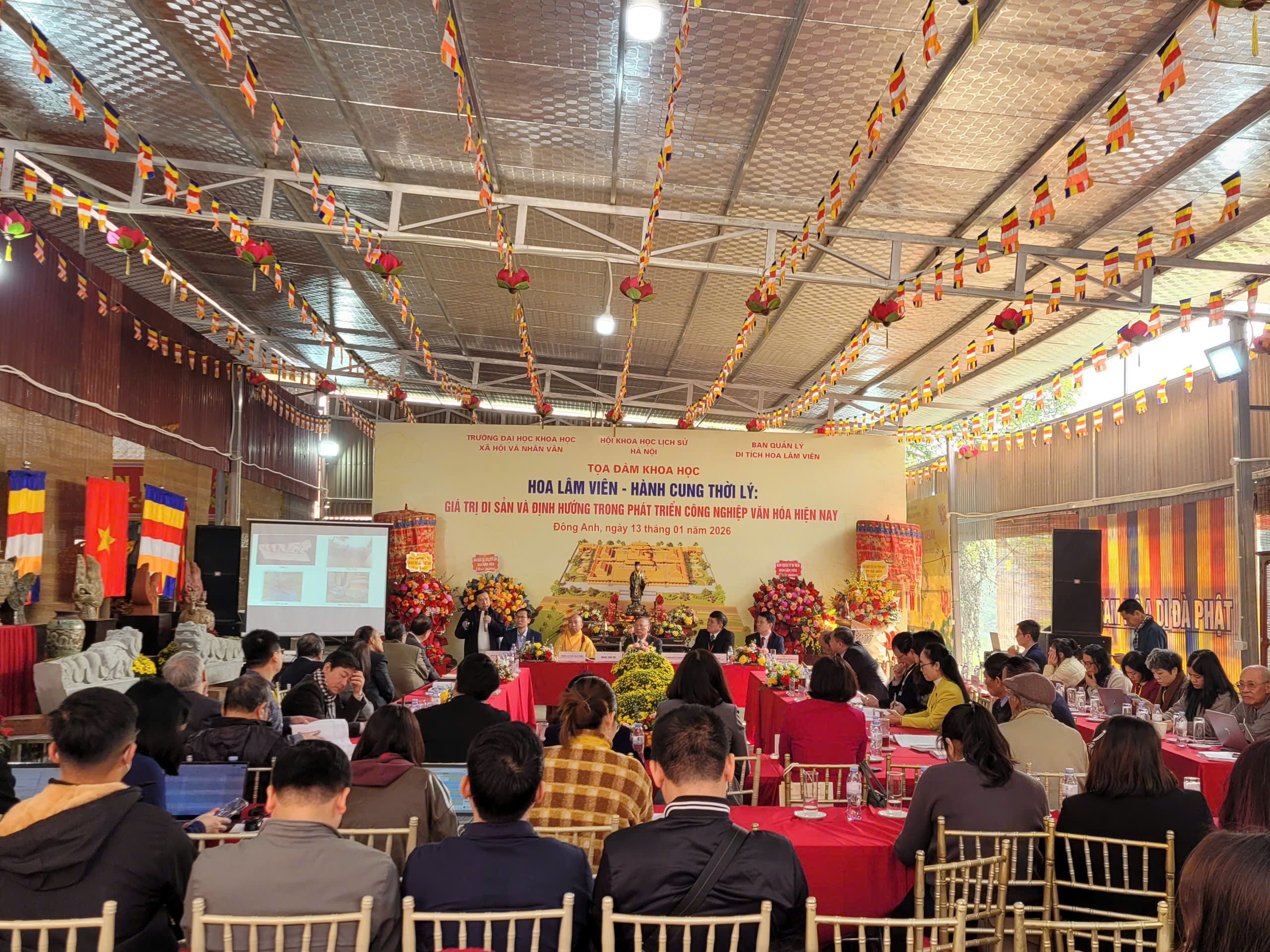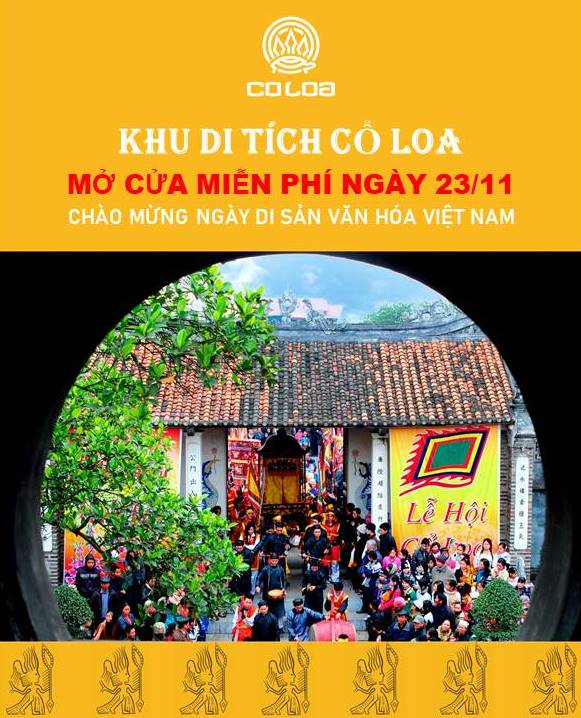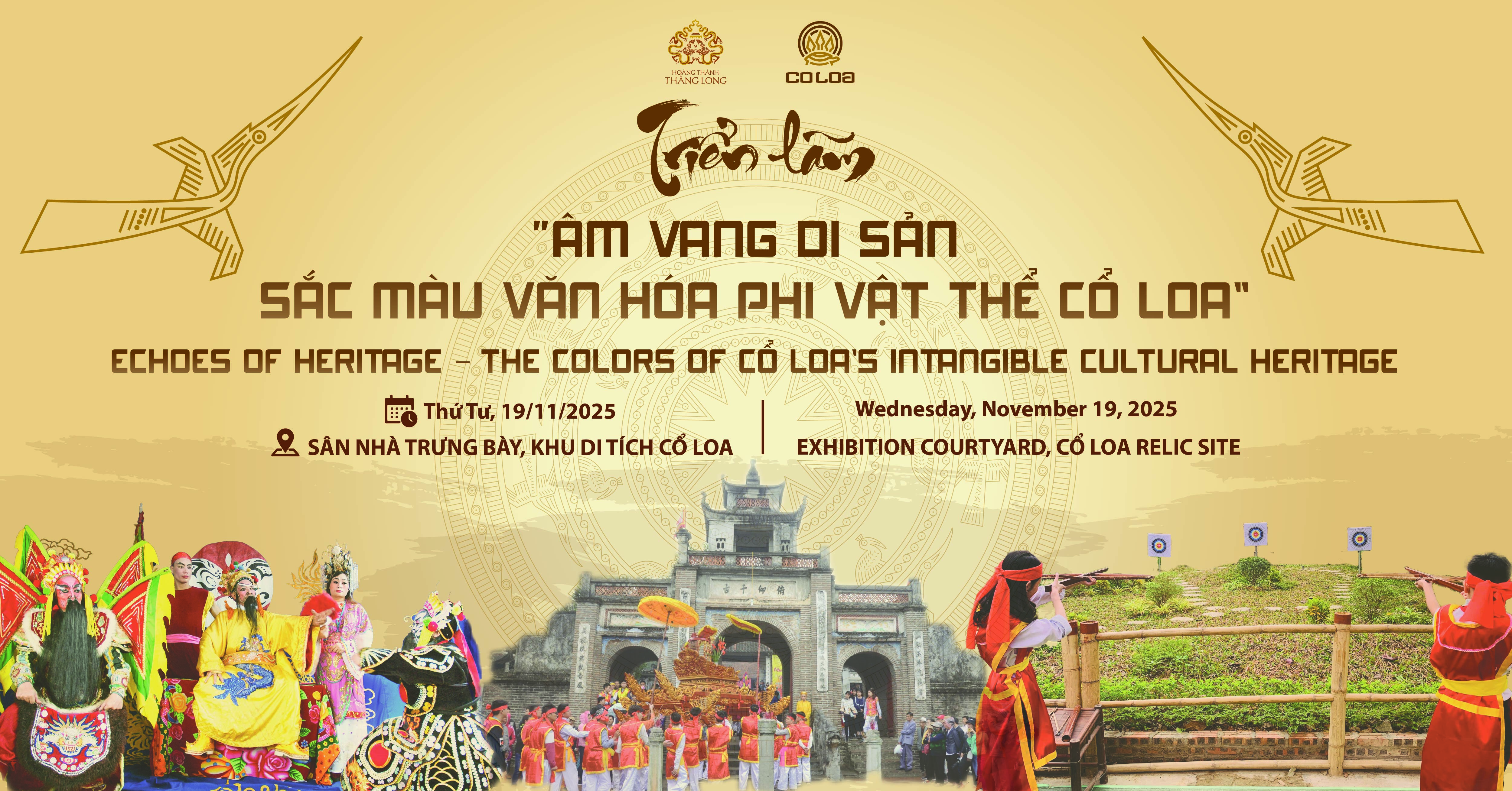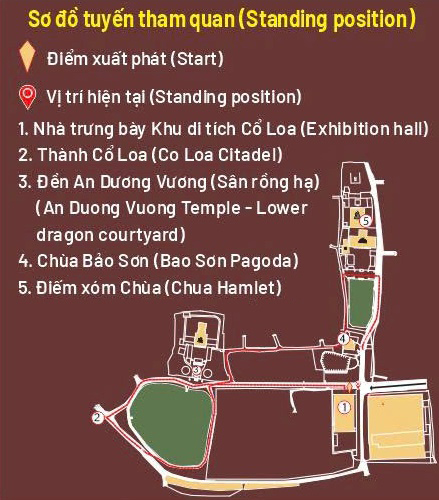
1. Noble of the Đường Lâm village
Old history records that Ngô Quyền came from a noble and powerful family in Giao Châu. Đại Việt sử ký toàn thư (1697) (The Complete History of Đại Việt) records: "Ngô King: reigned for 6 years, lived 47 years (898-944). The king was talented at planning and fighting, who restored the country, gaining independence from China and was crowned King. His family name is Ngô, first name is Quyền, who comes from Đường Lâm Village, having a long history of nobility. His father is Ngô Mân, who worked as Châu mục (a govenor of one region in Đại Việt).
“Đại Việt sử ký tiền biên” (1800) also says that: "Ngô King: His family name is Ngô, first name is Quyền, who comes from Đường Lâm Village, having a long history of nobility. His father is Ngô Mân, who worked as Châu mục (a govenor of one region in Đại Việt). When the King was born, there was strange light that filled of his house. His appearance was abnormal, having three moles on his back. The astrologer thought it was strange and said he could master a direction, so he was named Quyền. When he grew up, he had a handsome appearance, eyes as bright as lightning, amble like a tiger, had courage, and had the strength to hold a cauldron..."
“Khâm định Việt sử thông giám cương mục” (1856-1884) records again show that: “Ngô Quyền, lived in Đường Lâm village, having a long history of nobility, his father is Ngô Mân, who worked as Châu mục (a govenor of one region in Đại Việt).
Thus, it shows that Ngo Quyen was born into a family with a tradition of patriotism against the Northern invaders. According to the Gia Vien Temple, Hong Bang District, Hai Phong City, Ngo Quyen's fourth-generation ancestor was Ngo Xuan, who recruited more than 100 subordinates to follow Trieu Quang Phuc, continuing the heroic career of Ly Nam De against the Liang army. Because of his many achievements, he was appointed as a local chief and his title was passed down from father to son. Ngo Quyen's father was Ngo Man, and his mother was a woman of the Pham family, from the same Duong Lam district. Ngo Quyen gave birth to four sons: Ngo Xuong Ngap (Thien Sach Vuong), Ngo Xuong Van (Nam Tan Vuong), Ngo Nam Hung, and Ngo Can Hung (That Truyen).
2. Ngo Quyen with the victory on Bach Dang River in 938
In the year Dinh Dau (937), Kieu Cong Tien - a general of Duong Dinh Nghe murdered his commander and usurped the position of military governor. From Ai Chau, Ngo Quyen, a general and son-in-law of Duong Dinh Nghe, prepared forces to march to the North to eliminate the traitor. Faced with the hatred and resistance of the army and people in the country, Kieu Cong Tien saw himself as weak and alone, so he despicably sent someone to ask for help from the King of Southern Han. Foreseeing the enemy's intention of "internal attack and external attack", Ngo Quyen quickly gathered forces to fight against internal and external enemies. In October 938, Ngo Quyen marched to surround Dai La citadel, destroyed Kieu Cong Tien, crushed the reactionary forces, and foiled the Southern Han's plot to use internal support. Next, he gathered all national forces, called on and mobilized the people of the whole country, especially the militiamen of villages in the Northeast to join the fight against the enemy; On the other hand, he advocated taking advantage of the rugged terrain of the mountains, forests, and rivers at the mouth of the Bach Dang River to secretly set up an ambush, with a field of underground stakes planted under the riverbed and deploying troops to lie in ambush on both sides of the river, ready to intercept the enemy.
At the end of December 938, the Southern Han fleet led by Hoang Thao crossed the sea from Guangdong (China), passed through Dong Kenh, Vinh An district, and entered Ha Long Bay. As planned, when the tide was rising, Ngo Quyen sent a part of the navy to challenge, then pretended to lose. Hoang Thao urged his troops to chase after them, but they had fallen into the ambush that Ngo Quyen had set up. When the tide was low, Ngo Quyen ordered the navy and army from the ambush positions to suddenly rush out to block the enemy's fleet, attacking both sides of the enemy's fleet. Being attacked suddenly and fiercely, the Southern Han navy was unable to react in time, their formation was in disarray, they suffered great losses, and were forced to turn around and flee to the sea, but were trapped in a battle of underwater stakes. In a short time, the entire fleet of Southern Han warships was sunk, most of the enemy troops were destroyed, including the commander Liu Hongtao.
3. Ngo Quyen proclaimed himself King and established the capital in Co Loa
Immediately after the victory, Ngo Quyen led a large army to establish the capital in Loa Thanh (Co Loa citadel, Dong Anh district, Hanoi) to show his intention to continue the cause of building and defending the country under the reign of Hung Vuong - An Duong Vuong, affirming his determination to maintain the newly regained independence of the young nation. He decided to abandon the position of Governor of the Northern feudalism, and proclaimed himself King. The book Dai Viet Su Ky Toan Thu states that “Ky Hoi, year 1 (939), (…). In the spring, the king began to proclaim himself King, established Duong Thi as Queen, appointed hundreds of officials, and established the royal rites and uniforms”. He resolutely severed all dependence on foreign countries, built a government based on the centralized monarchy model, a truly independent kingdom.
Ngo Quyen ruled the country for less than 6 years. In 944, he passed away at the age of 47. The hero's career of founding the country and proclaiming himself king was still unfinished, but in general, it can still be recognized that the Ngo Dynasty "was an independent state of a nation with full sovereignty, in terms of ideological consciousness as well as in practical activities" (Phan Huy Le, 2011, Finding the Origin, The Gioi Publishing House, p.700).
Le Van Huu (1230-1322), the historian who founded the Dai Viet history of the Tran Dynasty and was honored as the founder of Vietnamese history, confirmed: "Tien Ngo Vuong was able to use the newly raised army of our Viet country to defeat the million troops of Luu Hoang Thao, founding the country and proclaiming himself king, making the Northerners not dare to come again. It can be said that he was angry once and calmed the people, he was good at strategy and fighting. Although he only proclaimed himself king, not yet ascended the throne, and changed the reign name, the legitimacy of our Viet country was almost restored". The outstanding patriot of the early 20th century, Phan Boi Chau, honored Ngo Quyen as the "Ancestor of our country's restoration".
MANAGEMENT DEPARTMENT OF CỔ LOA VESTIGE SITE








